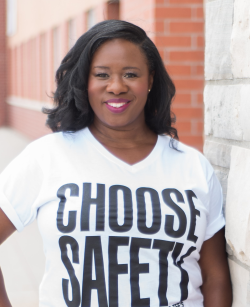Inclusion Can Impact Performance
Contribution by Lee-Anne Lyon Bartley, BASc, CRSP, CP-FS
Diversity, Equity, and Inclusion (DEI) is not a new concept, it’s been around for a long time and workplaces are continuing to advance conversations around DEI more and more everyday. When it comes to workplaces, the power of inclusion, feeling like you’re a part of the team, not feeling like an outsider, may not be readily thought of in the context of performance.
Here’s a little story that might help explain further.
Once upon a time there was a member of a school sports team, they really enjoyed the sport and were excited to make the team. The season started and practice began, they started to interact with the other team members but noticed they hardly got any response, no one really spoke with them and every time they were together as a team, the rest of the team spoke together in another language that they couldn’t speak. The other team members knew they were unable to speak the same language as the rest and it wasn’t taken into consideration to include them in conversation.
A few weeks passed by and although the team member tried to interact with the rest of the team, even tried to say hello in the language the rest of the team spoke, there was no change in how little the other team members interacted with them. The performance of the isolated team member started to decline, they weren’t as engaged or as enthusiastic about playing as they were when they first joined the team, and they weren’t winning as they did previously. The performance continued to decline, and the team suffered some losses in competition. It came to the point that the team member decided not to continue playing as they didn’t feel like their contribution mattered.
Doesn’t this same scenario sometimes happen in our workplaces? There may be workers in our teams that on the surface may not be performing well but maybe the performance is a result of feeling less connected or isolated from the team. The reduced performance could include the safety and quality of the work being completed or produced resulting in loss. They may also be less likely to speak up about hazards or quality issues as they may feel like their voice doesn’t matter.
The Canadian Centre for Diversity and Inclusion has a reference to a glossary of terms, and they define inclusion as “the creation of a culture that embraces, respects, accepts and values diversity. It is a mindful and equitable effort to meet individual needs so everyone feels valued, respected, and able to contribute to their fullest potential.” The point of a worker being able to contribute to the fullest potential is one of the powers of inclusion and in turn could result in better performance, safety, and morale.
Lee-Anne Lyon-Bartley, is mom to Cameron and currently Executive Vice President, HSEQ at Dexterra Group, an infrastructure support services provider. She is a proud alumni of Toronto Metropolitan University, is a CRSP (Canadian Registered Safety Professional) and a CP-FS (Certified Professional- Food Safety). She was a regular guest on the Steven and Chris show on CBC and has appeared on several Canadian news networks. She volunteers with WSPS, My Safe Work, TMU’s SOPHE, Threads of Life, supports the Safety Diva Canada Scholarship with the Jamaican Canadian Association and supports the Canadian Association for Black Health and Safety Professionals. She was awarded Canada’s safest employer safety leader of the year in 2022, the Women in EHS award and listed as a Top Women in Safety. She was appointed to the Prevention Council of Ontario and is currently serving a three-year appointment. Connect with her and LinkedIn and follow #talkingHSEQtuesday


